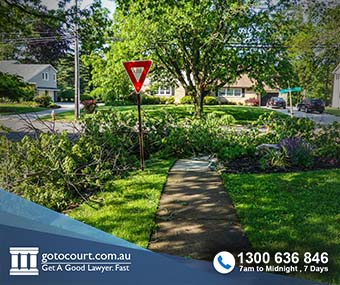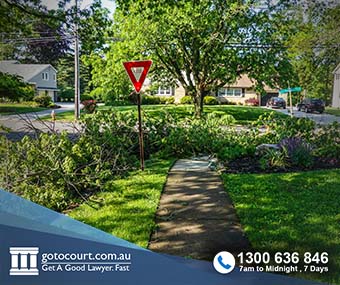Call our lawyers
now
or,
have our lawyers
call you
Stamp Duty in the ACT
Updated on Oct 25, 2023 • 5 min read • 246 views • Copy Link
Stamp Duty in the ACT
Stamp duty is a tax imposed on certain kinds of dutiable transactions or dutiable instruments. In the ACT, it is imposed on dutiable transactions. One of the most common situations where a person is required to pay stamp duty is when they purchase land or a new home. The ACT Revenue Office is responsible for administering stamp duty in the ACT. This page deals with stamp duty in the ACT.
Legislation
The rules for how stamp duty are imposed are contained in the Duties Act 1999. The ACT Revenue Office also publishes guidance on how the rules apply.
Dutiable transactions
The ACT imposes stamp duty on dutiable transactions. This includes transfers of dutiable property, declarations of trust over dutiable property, and agreements for the sale of dutiable property.
The transaction involved does not need to be set out in a written contract; it can occur, for example, electronically. There are also other kinds of dutiable transaction, such as duty on insurance premiums and motor vehicle registrations.
What is dutiable property?
Stamp duty only applies to dutiable transactions that occur to dutiable property. What is dutiable property is listed in section 10 of the Duties Act 1999. It includes land and options to purchase land in the ACT, and goods in the ACT (provided they are transferred as part of a larger transaction that includes another kind of dutiable property such as land). It does not include shares or units. This is important because a lot of jurisdictions still impose stamp duty on transfers of shares or units. Purchases of shares may still be subject to another kind of duty known as landholder duty, which applies when shares are purchased in a company that owns a certain amount of land in the Australian Capital Territory.
How much stamp duty do I have to pay?
There are formulas that the Australian Capital Territory Revenue Office uses to calculate how much stamp duty you have to pay on a dutiable transaction. Generally speaking, the amount you will have to pay depends on the value of the dutiable property (known as its dutiable value). The value of the dutiable property is equal to the greater of what you are paying for the property, or its market value free from other interests like mortgages. The rate of duty applied to that value is a rate determined by the ACT Revenue Office. For example, if land is transferred and that land has a value of $550,000, the amount of duty payable is equal to the sum of $15,800, plus 5% of the value of the land which exceeds $500,000 (i.e. $2,500). This gives a total stamp duty liability of $18,300. The rates of duty change depending on the value of the property.
How do I pay stamp duty?
Generally speaking, you pay stamp duty by lodging the original contract you entered into that causes the dutiable transaction to happen (e.g. an agreement for the sale of land) with the ACT Revenue Office, together with a cheque for the amount of stamp duty payable. This means you will usually calculate the stamp duty liability yourself before lodging the contract, so it is important you get legal advice to ensure you don’t miscalculate what you have to pay. You may also need to lodge a form with the contract. You can find a list of all the forms on the Revenue Office website.
The ACT Revenue Office will then return the stamped contract to you, together with the counterparts which will be stamped as not owing any duty. The amount of duty needs to be paid within 90 days of you coming under an obligation to pay it (i.e. the time at which the contract was entered into). It is very important that you comply with this deadline; if you do not, the ACT Revenue Office may charge you a penalty, or make you pay interest for late payment of duty.
Exemptions and concessions
The Duties Act 1999 includes a number of exemptions from paying duty, and concessions which reduce the amount of duty you have to pay. For example, transfers of property made to beneficiaries under a trust are subject to a concessional rate of $20 in certain circumstances. This also applies to distributions made under the will of a deceased person. Transfers made under a court order in divorce proceedings are fully exempt from duty, as are transfers made under other kinds of orders granted under the Family Law Act.
There is also a home buyer concession scheme for purchases of vacant land or new homes. The scheme no longer applies to purchases of established homes. For example, if you purchase a new home and satisfy the other requirements of the scheme, the amount of duty payable will be $20 if the value of the home is $446,000 or less. However, the concession does not apply to homes with a value of $550,000 or more, or vacant land with a value of $298,300 or more.
If you require legal advice or representation in any legal matter, please contact Go To Court Lawyers.

Affordable Lawyers
Our Go To Court Lawyers will assist you in all areas of law. We specialise in providing legal advice urgently – at the time when you need it most. If you need a lawyer right now, today, we can help you – no matter where you are in Australia.How It Works







1. You speak directly to a lawyer
When you call the Go To Court Legal Hotline, you will be connected directly to a lawyer, every time.


2. Get your legal situation assessed
We determine the best way forward in your legal matter, free of charge. If you want to go ahead and book a face-to-face appointment, we will connect you with a specialist in your local area.


3. We arrange everything as needed
If you want to go ahead and book a fact-to-face appointment, we will connect you with a specialist in your local area no matter where you are and even at very short notice.
















